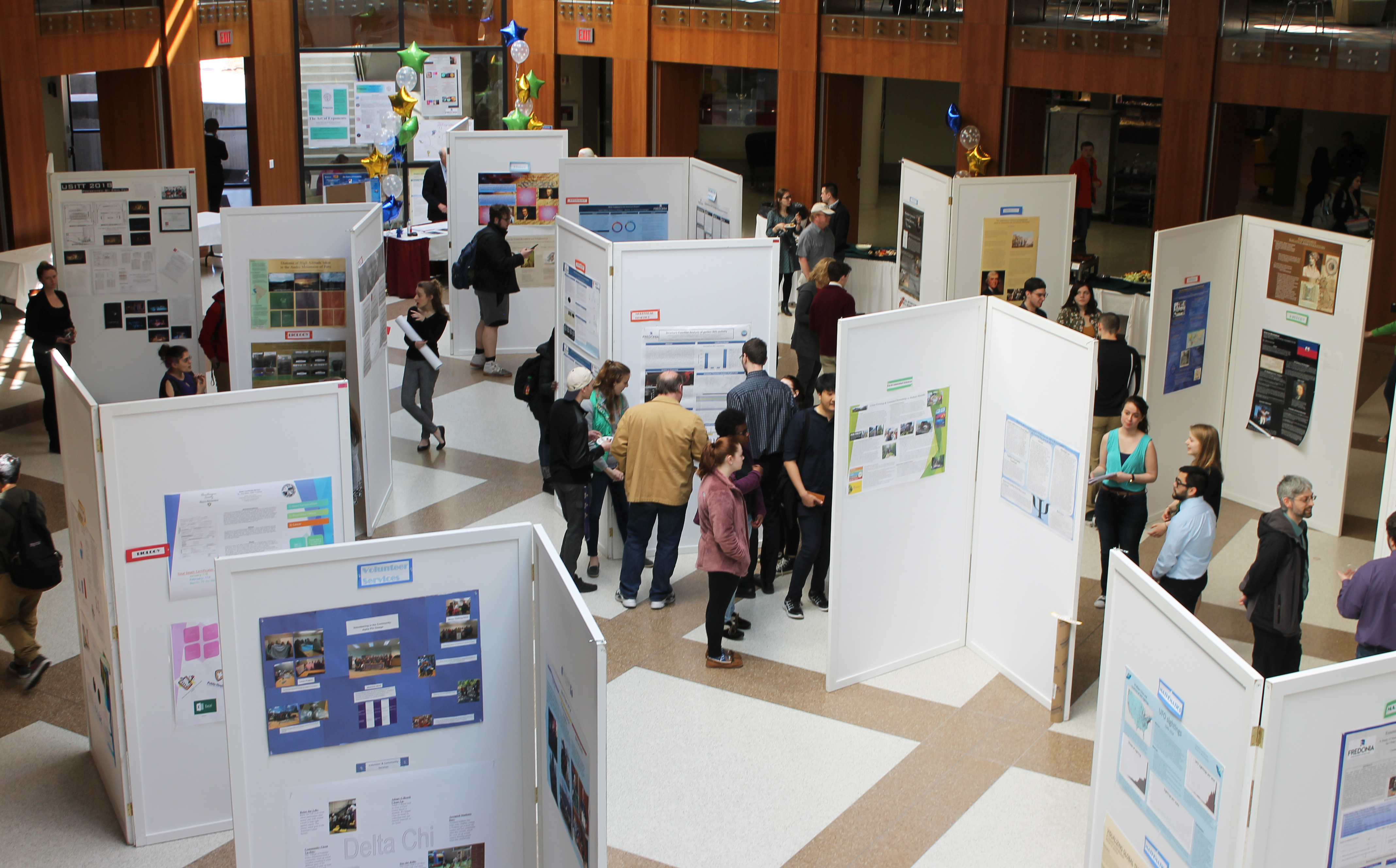
presentations made by individuals and teams of students.
ALIX SMITH
Special to The Leader
OSCAR stands for the Office of Student Creativity and Research. Jack Croxton, who has been director of the program for about fifteen years now, explained what OSCAR is all about.
“The mission of OSCAR is to basically promote undergraduate research, to try to provide support for undergraduate research, and I’d say to celebrate undergraduate research . . .” said Croxton. “[And] to take what they’ve been learning in the classroom and being able to apply it now by doing some type of a research project under the supervision of a mentor.”
About 200 students shared their presentations on a rotating basis. There were about 15 two-fold walls covered in pinned posters that exhibited in neat zig-zagged rows. The expo’s $24,000 budget helps pay for students to go to conferences and land internships so that they can do their research efficiently.
Students tend to work all year long on these projects. Some of the projects are synopses of what their capstones are about. Some students chose to do musical numbers such as ukulele or dance routines, which were presented in nearby rooms. About ninety percent of the students opted to create posters.
Lily Dixon, a junior, and Alberto Gonzalez, a senior, are both biology and psychology dual majors. Their project involved investigating whether or not valproic acid, which is used in bipolar medication, when taken during pregnancy could lead to autism. Using mice, they made a breakthrough in discovering that the acid does not cause autism, but rather has beneficial effects.
Daniel Mosher is a senior double major in history and philosophy with a minor in religious studies. His poster highlighted John Locke’s views on religious tolerance according to the testimony of Jesus, with a few exceptions.
“I’m excited mostly because it’s a way to share the testimony of Jesus. More so, [I’m] excited to share the misconceptions,” said Mosher. “This sets the record straight as far as I’m concerned.”
Becky Jones, an adolescent education, and history double major presented her poster on French peasants’ actual views, lifestyles and what the elites thought of them during the French Revolution. Jones also looked into proving that peasants not only had revolutionary ideas but that the ideas could be part of the Enlightenment. Her experience at the expo was pretty relaxed, much to her surprise.
“I saw my friends and chatted to my classmates about their finished posters and what they were doing [and] wandered around some. It was nice,” said Jones. “But it was more relaxed than I expected because it has this whole acronym and everything.”
The expo is held every spring semester. That way students have at least the entire academic year to work on their projects.
When asked about the number of students showcasing their research, Croxton said he’s focusing on the program’s outreach, so that more students will participate.
“I think there are some students doing some interesting things that should be presenting at the expo but haven’t done so,” he said.
